
CENER

The National Renewable Energy Centre of Spain (CENER) develops applied research in renewable energies and provides technological support to companies and energy institutions in five areas: wind, solar thermal and photovoltaic solar energy, biomass, energy storage and energy transition in cities, and grid integration of energy. CENER is a technology centre with worldwide recognised prestige, activity and experience.
The Board of Trustees consists of the Spanish Ministry of Science and Innovation, Ciemat, the Ministry for the Ecological Transition and Demographic Challenge, and the Government of Navarre.
CENER’s headquarter is located close to Pamplona (Navarre-Spain). The centre has also cutting-edge technological infrastructures, such as the Wind Turbine Test Laboratory (LEA) and the Biorefinery and Bioenergy Centre (BIO2C) and an office at Seville (Andalusia –Spain).
CENER´s expertise is focused on three main areas:
- Development of R+D+i projects for industrial application.
- Highly skilled testing services and certification for components.
- Technical assistance and feasibility studies for renewable energy technologies.
CENER’s activity covers the entire renewable energy generation process:
- Renewable Resource Assessment.
- Development of Simulation and Design Tools.
- Development of Renewable Energy Generation Technology.
- Definition and Performance of Tests on complete systems and components.
- Technological Risk Assessment.
- Feasibility Studies.
- Development and Application of Regulatory Law
Competence relevant to ASTERIx-CAESar
- Development of Simulation and Design Tools.
- Development of Renewable Energy Generation Technology.
- Technological Risk Assessment.
Role in the project
Project management and coordination (WP8).
Responsible of WP1 “Concept Definition and Techno-economic Optimization”. Several use-cases around the world will be analysed and results will shed light on how to optimise the ASTERIx-CAESar concept and increase its social and market impact in different scenarios.
Responsible of WP2 “Solar Receiver Development”. The work package develops the ASTERIx-CAESar solar receiver, based on the open-volumetric ceramic foam technology, introducing a modular stackable free floating receiver structure to optimize cost and durability.
Strong contributions in WP3 “Advanced Heat Exchangers”, in WP4 “Advanced CAES and Power Cycle Development and Optimization”, as well as in WP5 “Automatization and improved plant operation and monitoring via AI methods”
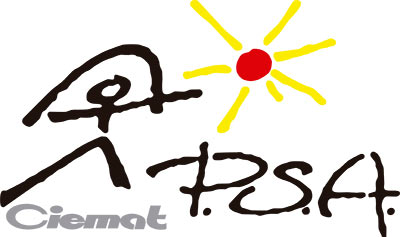
CIEMAT-PSA

CIEMAT is a Spanish Public Research Institution and since its founding in 1951, it has developed and led R&D&i projects in the fields of Energy, Environment and Technology. CIEMAT is formed by a multidisciplinary team and is owner of the Plataforma Solar de Almería (PSA), the largest concentrating solar technology research, development and test centre in the world. Moreover, PSA is formally considered as European Large Scientific Installation and its test facilities are a world reference and include all Concentrated Solar Power (CSP) technologies and Water Treatment processes. Together with the development and the improvement of the original PSA facilities, an unique and great expertise around the operation and maintenance have been acquired by PSA’s staff. During the execution of this project, four different but complementary units of CIEMAT will participate:
1) Point Focus Unit (PFU) targets are focusing to provide technical assessment to the industry stakeholders together with the research and innovation related to power tower technologies such as the measurement of concentrated solar flux, thermal analysis of new fluids and receivers, optical and numerical analysis. Furthermore, the development of volumetric receivers has been one of the key research lines since 1987, being PSA the only facility worldwide where at least 20 different prototypes with a minimum thermal power of 200 kWth have been installed, tested and evaluated.
2) Solar Thermal Applications Unit (STAU) of PSA has a long history of collaboration with other European R&D centers and industrial partners to decarbonize industrial processes such as desalination and brine concentration. Currently, the Unit’s researchers are coordinating CIEMAT’s participation in the EU project INDIA-H2O, INTELWATT and WATER MINING, under which PSA is currently becoming a Living Lab on Sustainable Desalination.
3) Materials for Concentrating Solar Thermal Technologies (UMAT) of PSA has as main objective the development, preparation, characterization and testing of materials for CSP Technologies, as well as the use of these technologies for the treatment and processing of materials, through different lines of activity.
4) Energy Systems Analysis Unit (ESA) is a research group whose main role is to develop socioeconomic and environmental studies to complement technical results of CIEMAT projects, in order to support decision-making in energy and environmental issues. Three research topics are the basis for carrying out these works: Environmental analysis and externalities, socioeconomic analysis, and energy modelling. This multidisciplinary team will focus in an adequate and proper project development, including experimental testing at solar furnace and CRS-tower facilities, life cycle analysis and socioeconomic impact and potentialities of desalination processes.
Competence relevant to ASTERIx-CAESar
PFU will be involved in the solar receiver development, including absorber optimization, thermal CFD simulations of the system absorber-cup, thermal insulation and design of large-size cups, in the development of an Artificial Intelligence (AI) heliostat control tracking system for low cost operation and will be the responsible of all the testing and evaluation of the complete ASTERIX-CAESAR prototype. STAU will contribute to modelling and simulation activities of CSP-PV-CAES plant plus desalination (with reverse osmosis and multi-effect distillation) as well as to the design and experimental evaluation of the reverse osmosis powered by the compressed air of the CAES. UMAT will participate in the solar receiver develpment, including the analysis of the optical properties and its variation with time. Finally, ESA will put in practice both environmental and socioeconomic methodologies, such as Life Cycle Assessment and extended Multiregional Input-Output analysis, to get results on the sustainability behavior of the CSP facility in the entire life-cycle.
Role in the project
CIEMAT-PSA is the WP6 leader – Validation & Demonstration of receiver and power cycle, and participate in all the other WPs except WP4.
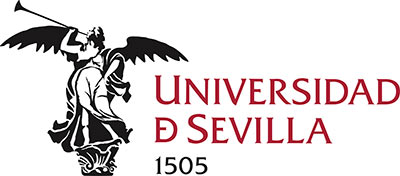
University of Seville

University of Seville (USE) has almost 70,000 students and 7,000 staff. More than 12,000 students are following postgraduate courses, enrolled onto 111 master programs and 32 doctoral programs. USE is also committed to research with more than 400 national and regional projects and over 60 projects funded by the European Union (active). Research is carried out within 134 academic departments, 8 Joint USE – Spanish National Research Council (CSIC) Research Centres and 13 University Research Institutes. The School of Engineering at University of Seville provides higher education to more than 5500 undergraduate and graduate students, in 8 Bachelor and 11 Master degrees, and coordinating around one third of the international research projects carried out by University of Seville.
The participation in ASTERIX-CAESAR will involve two departments: the Dep. of Energy Engineering will work on the design and analysis of turbomachinery and the integration of bottoming power cycles; and the Dep. of Electronic Engineering will develop advanced high-temperature fibre-optic sensors for monitoring high-concentration solar thermal systems.
Competence relevant to ASTERIx-CAESar
As a R&D hub for renewable energy technology in Southern Europe, University of Seville has been involved in the development and maturation of solar thermal energy and other low-carbon power generation technologies through a large number of research and industrial projects funded by public and private institutions.
University of Seville will capitalise the experience gained in past projects developing innovative CSP concepts integrating unconventional power cycles (Organic Rankine Cycles, Supercritical CO2 Cycles) and their components (turbomachinery, heat exchangers), and the methodologies and tools used thereof. This is also the case for the development of innovative sensors, which will build upon past projects where preliminary designs of these concepts have been tested experimentally.
The very large network of stakeholders of University of Seville in the fields of low-carbon power generation and high-temperature optical sensors is also a very valuable asset for ASTERIx-CAESar.
Role in the project
University of Seville is the WP4 leader – Advanced CAES and Power Cycle Development and Optimization
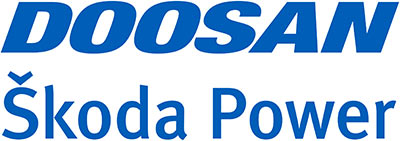
Doosan Škoda Power s.r.o.

Doosan Škoda Power is part of a strong group of companies united under the Doosan Group, which supplies leading technologies and services of the highest quality and value to customers all over the world.
Doosan Škoda Power is a leading global manufacturer and supplier of power plant equipment, especially steam turbine/generator sets with outputs between 3 and 1,200 MW. The company has extensive experience and references in delivery and commissioning of applications for steam-driven and fossil-fuel-fired power plants, CHPs, nuclear and solar power plants (CSPs), biomass plants, energy-from-waste plants and in industrial applications for oil and gas, pulp and paper, and many more. As regards services, the company offers retrofits and modernization (R&M) of installed OEM and non-OEM equipment, overhauls and long-term service including spare parts delivery. Annual research and development investments guarantee high quality products that meet specific customer requirements.
Competence relevant to ASTERIx-CAESar:
Global manufacturer and supplier of turbines with own air turbine concept.
Role in the project
WP4 (T4.2,3,4) – Advanced CAES and Power Cycle Development and Optimization
WP7 – Dissemination, Communication and Exploitation
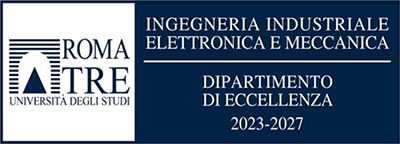
Università degli Studi ROMA TRE

Roma Tre University was founded in 1992, and it has rapidly grown both in terms of students and offered courses. It has gained an excellent rating among the most prominent academic rankings, especially within young universities. It is organized in 13 departments offering Bachelor and Master Degrees, Postgraduate and Advanced courses, PhDs and Specialisation Schools.
Roma Tre University is a dynamic, modern and international university that contributed to change the city’s identity with a persevering process of restructuring and re-using abandoned industrial buildings, converting them into factories of knowledge and research.
Among its founding values, Roma Tre assumes the promotion and organization of high-quality international research, excellence in higher education, the development and dissemination of knowledge, environmental protection, international solidarity, the principles of gender equity, and the evaluation and recognition of merit.
In all disciplinary areas, teaching and research constantly interact and target a global world, thus promoting the upgrading and enrichment of knowledge; they combine their action with the third mission, considered both as technology transfer and as a projection of higher education activities on the territory.
The international dimension is considered a strategic aspect for the University, which adheres, among others, to the inspirational principles of the Magna Charta Universitatum and identifies itself in the principles and tools of the European Research and Higher education Area.
Competence relevant to ASTERIx-CAESar
The Fluid Machinery and Energy Conversion Research Group of the Department of Industrial, Electronic and Mechanical Engineering has a relevant expertise in the design and analysis of advanced energy systems. In the last years, the group carried out a significant research activity focused on the design and the techno-economic analysis of CAES systems equipped with artificial air storage. In carrying out such activity, the group has gained expertise and competences which are fully in line with the ASTERIx-CAESar project objectives.
Role in the project
ROMA3 team leads WP3 (Advanced Heat Exchangers). In such a WP, ROMA3 is mainly involved in the thermodynamic and economic modelling of the heat transfer devices required in the integrated CSP-CAES plant concept addressed in the ASTERIx-CAESar project( low and high temperature heat exchangers). Moreover, ROMA3 contributes to WP1 (Concept definition and techno-economic optimization), especially in evaluating the techno-economic plant performance in significant use cases. It supports, as needed, WP4, WP6, WP7 and WP8.

Fraunhofer IKTS

The Fraunhofer-Gesellschaft, based in Germany, is the world’s leading applied research organization. By prioritizing key technologies for the future and commercializing its findings in business and industry, it plays a major role in the innovation process. A trailblazer and trendsetter in innovative developments and research excellence, it is helping shape our society and our future. Founded in 1949, the Fraunhofer-Gesellschaft currently operates 76 institutes and research units throughout Germany. Around 30,800 employees, predominantly scientists and engineers, work with an annual research budget of roughly €3.0 billion, €2.6 billion of which is designated as contract research.
The Fraunhofer Institute for Ceramic Technologies and Systems IKTS, as one of these Fraunhofer institutes, conducts applied research on high-performance ceramics. With its current 13 sites and approximately 800 employees, Fraunhofer IKTS represent Europe‘s largest R&D institute dedicated to the study of ceramics.
As a research and technology service provider, the Fraunhofer IKTS develops advanced high-performance ceramic materials, industrial manufacturing processes as well as prototype components and systems in complete production lines up to the pilot-plant scale. In addition, the research portfolio also includes materials diagnostics and testing. Our development work is derived from the needs of the nine market-oriented business areas: mechanical and automotive engineering, electronics and microsystems, energy, water, environmental and process engineering, bio- and medical technology as well as non-destructive testing and monitoring.
Our motivation is to develop sustainable and economical system solutions and services for our partners from industry and science that offer solutions to challenges facing society as a whole, such as resource scarcity, the energy transition and digitalization.
Competence relevant to ASTERIx-CAESar
Improvement of ceramic foam absorber
Role in the project
IKTS participates in WP2 and leads task 2.1, 2.4 and 2.5. These tasks are connected to the two main objectives of WP2: Firstly, the transition to larger module sizes (e.g. 20 x 20 cm, maybe up to 30 x 30 cm) in order to reduce the cost of the ceramic receiver structure, which supports the ceramic foam tiles and secondly, the increase of the oxidation resistance and mechanical strength of the foam absorber in order to maximize life time under high-flux commercial operation.
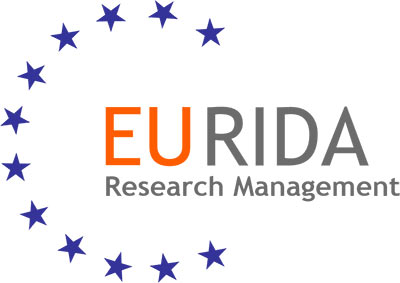
EURIDA Research Management

EURIDA is an SME based in Austria that specializes in research management, impact maximisation and open science and innovation strategies for European collaborative research and innovation projects.
EURIDA has led communication, exploitation and public engagement activities in several Horizon
2020 and Horizon Europe projects with focus on innovative technologies and high risk/high gain concepts in the fields of energy, the bioeconomy, artificial intelligence, digital innovation and cross-sector innovation with high societal relevance. Over the past years, EURIDA has built a network through which they connect with industries, end users and the wider public with the aim to extend a project’s reach beyond technical expert communities, resulting in maximum impact and uptake of results by wide stakeholder groups, including industries, end users, other market actors, the civil society as well as the general public.
Competence relevant to ASTERIx-CAESar
For ASTERIx-CAESar, EURIDA will provide their expertise in building tailored exploitation strategies and in identifying opportunities and potential risks that novel technologies in the energy sector face on the way to market and into our everyday lives. This involves creating exploitation pathways for the ASTERIx-CAESar CSP-CAES concept, identifying individual project results and technology components with the highest innovation potentials, coordinating the strategic use of knowledge for a multitude of innovation-related stakeholders and investigating social aspects in the field of CSP and CAES. Goal is to maximise positive socio-economic and social impacts and to avoid or minimise any possible negative effects at societal levels, which could pose a risk towards the future integration of ASTERIx-CAESar solutions in the energy system.
Role in the project
EURIDA is task leader for social & regional aspects, risks and public acceptance and for exploitation, innovation and IP management withing WP7.

Aalborg CSP A/S

Aalborg CSP A/S is a leading developer and supplier of innovative, renewable technologies with the vision Changing Energy aiming at changing the way energy is produced and stored today. We design and supply green solutions and integrated energy systems based on high- and low temperature energy storage, solar panels, heat pumps, boilers, Power-to-X and much more for industries and power plants worldwide.
Since 1988, Aalborg CSP has utilized its immense expertise within design and delivery of boilers, complex systems, renewable energy technologies and energy storage. Thereby, we have a deep understanding of individual energy needs, technology- and system integration as well as optimization with key competences such as performance modelling and system design.
Competence relevant to ASTERIx-CAESar
Aalborg CSP A/S is a key developer of solar tower receivers – tested and proven by a variety of demo and fully operational commercial CSP plants in the world. Aalborg CSP A/S also offers supply and installation of novel thermal energy storage systems for increased efficiency and flexibility.
Aalborg CSP A/S places strong focus on R&D activities and works both internally within the company and externally with Danish and international knowledge-based companies and institutions in continuously creating innovative and sustainable technologies. We match individual energy needs with the right systems and technologies and integrates and combines solutions to achieve synergies between both sectors and technologies. We do so in order to create optimum value for our clients, while also optimizing the utilization of the world’s energy sources aiming for a CO2 neutral future.
Role in the project
Aalborg CSP A/S will take part in the HEX design (WP3), the techno-economic optimization study (WP1). The company will, likewise, make both a market analysis and business models based on the best operation strategy for different scenarios (WP7). Aalborg CSP A/S is exploitation leader and could act as primary license holder of replicating the ASTERIx-CAESar concept worldwide as EPC company.
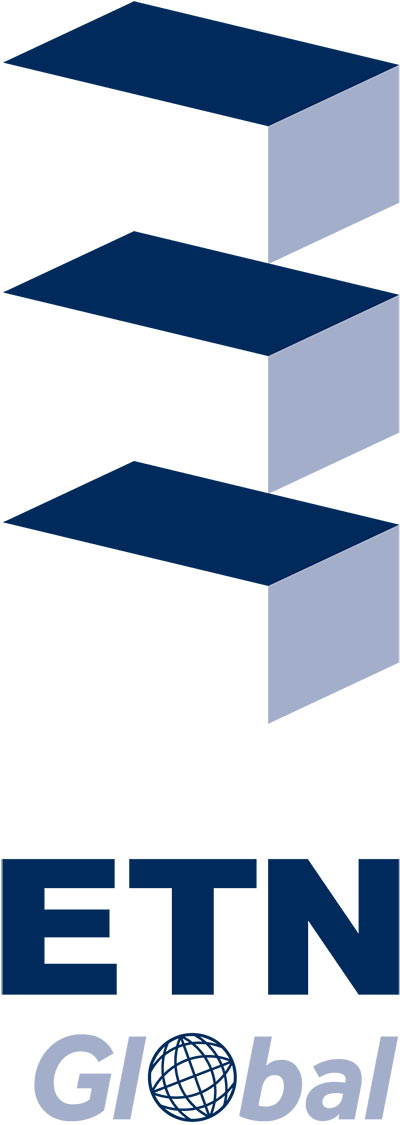
ETN Global

European Turbomachinery Network (ETN) is a membership, non-profit association based in Brussels (Belgium). It brings together the turbomachinery community for power generation and mechanical drive applications in Europe, North America, and Asia.
ETN addresses the main challenges and concerns of gas turbine users in committees and individual projects, composed of experts across the entire value chain: power generation and oil & gas companies, OEMs, R&D institutes, suppliers, service providers and technology consultancies. It has a wide international network and experience in coordination, communication and dissemination activities on EU and private funded projects.
ETN believes a common strategy and research effort between all stakeholders, along with supportive EU energy and research policies, will enable growth and increased competitiveness of the gas turbine sector in Europe and globally.
Competence relevant to ASTERIx-CAESar
As a European association primarily representing the interest of turbomachinery technology, ETN constitutes a link towards relevant stakeholders. ETN will capitalise on its wide network when providing space for the project dissemination via its working groups, events, and publications.
ETN will use its experience from previous EU-funded projects to communicate and disseminate targeted topical information pertaining to the ASTERIx-CAESar project. In this endeavour, emphasis is placed on ways of integrating project results in EU policies with the aim of instigating market uptake.
Role in the project
ETN Global is the WP7 leader – Communication, Dissemination and Exploitation.

IMDEA

The IMDEA Energy Institute (IME) is a research centre created by the Regional Government of Comunidad de Madrid in 2006 that operates as a non-profit foundation. It aims at contributing to the future establishment of a sustainable and decarbonized energy system, economically competitive and securing energy supply. The R&D Unit of High-Temperature Processes (HTPU) of IME focuses its activities on efficient and dispatchable solar concentrating technologies for power generation, industrial process heat and production of solar fuels and chemicals.
Competence relevant to ASTERIx-CAESar
IMDEA Energy contributes with its expertise on design, testing and characterization of components and equipment (i.e. measuring systems and tools) for point-focusing technologies (mostly solar tower). In this regard, two facilities will be used: (i) The 42kWe High Flux Solar Simulator (KIRAN42); and (iii) The Very High Concentration Solar Tower (VHCST). This is a unique infrastructure for testing components and devices under very high solar fluxes. The VHCST has a customized heliostat field that makes use of the most recent developments on small size heliostats and a tower with reduced optical height (15 m) to minimize visual impact. The heliostat field of 250kWth (500 m2 reflective surface) has been built adjacent to IMDEA Energy premises at the Technology Park of Móstoles, Spain, and consists of 169 small size heliostats (1.9 m x 1.6 m). In spite of the small size and compactness of the field, when all heliostats are aligned, it is possible to fulfil the specified flux above 2500 kW/m2 for at least 50 kW and an aperture of 16 cm, with a peak flux of 3000 kW/m2. VCSHT SCADA also allows for integrating automatic control algorithms.
Role in the project
Leader of WP5 on automatization and improved plant operation and monitoring via Artificial Intelligence methods.
Demonstration of AI control systems and optical sensors at TRL 6-7
Testing of single module solar receivers at real working conditions in solar tower at IMDEA Energy and support of experimental activities at CIEMAT/PSA.

Nova Therm Tech (NTT)

Nova Therm Tech (NTT) is an engineering company that gathers experience and skills developed during more than 25 years in the field of extreme temperature conditions by means designing and developing insulation systems capable of preserving energy and providing temperature control.
Strong background in research and development of innovative solutions and materials applicable to its field of action.
Capable of offering turnkey projects by means of a qualified net of collaborators in key manufacturing techniques. NTT may manage and coordinate the complete project to attend customer requirements.
Competence relevant to ASTERIx-CAESar
Heat shield and especial insulation specialist.
Role in the project
NTT participates in various WP and leads task 2.3.
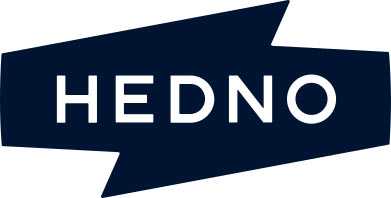
HEDNO

Hellenic Electricity Distribution Network Operator (HEDNO) is a subsidiary company of Public Power Corporation (PPC) S.A. HEDNO’s business activities include the operation, maintenance and development of the power distribution network in mainland Greece and the electricity system on non-interconnected islands, as well as the assurance of a transparent and impartial access of customers and of all network users to the full range of the network services.
HEDNO is the sole DSO in Greece and one of the largest DSOs in Europe in terms of the number of customers served (around 7.6 million, accounting for ~ 42,000 GWh annual electricity consumption). It operates a MV network of around 113,000 km, a LV network of around 128,000 km, while its HV network amounts to almost 1,000 km.
Competence relevant to ASTERIx-CAESar
As the operator of the Greek distribution network, HEDNO has at its disposal an abundance of information regarding both power grid operation and the national energy market. Provision of this information will allow for the formulation of realistic use-cases for the application of the developed techno-economic models of the project and the subsequent assessment of their efficiency.
Additionally, HEDNO can exploit its experience in the field and its great market reach to effectively bolster the dissemination process of the project, be it through working groups, events, or relevant publications.
Role in the project
HEDNO participates in three work packages:
- WP1 – Concept definition and Techno-economic optimization
- WP7 – Dissemination, Communication and Exploitation
- WP8 – Project Coordination and Management

Walter E.C. Pritzkow Spezialkeramik

Walter E.C. Pritzkow Spezialkeramik (WPS) is small scale enterprise founded in 1994. WPS is located in Filderstadt, Germany, producing Oxide Ceramic Matrix Composites (OCMC) Materials.
OCMC is a ceramic fiber reinforced ceramic, can withstand temperatures up to 1300°C and has a very good thermal shock resistance. Based on this material thin walled and light weight structures can be produced
The main activities of WPS is designing and manufacturing OCMC parts for industrial applications in the field of aluminium casting and furnace applications. Special fields are in aeronautic and astronautic. WPS special his owner has more than 30 years experience in high temperature solar applications.
Competence relevant to ASTERIx-CAESar
As a producer of OCMC materials and parts with experience in high temperature solar application, especially in volumetric ceramic receivers, based on SiC foams and OCMC carrying structures, WPS will help optimizing the receiver technology is needed in the ASTERIx-CAESar project.
WPS will design and produce the “ceramic cups”, carrying the SiC-foams. It should be thermal shock resistant, light weight and with a low thermal inertia. Also, the costs of this product should be reduced compared to the SiC-cups have been used in the project CAPTURE.
WPS will also help with a large knowledge in isolating materials acquired in the German funded project “ISOL” together with the company ARNOLD Group and the DLR
Role in the project
Member of the WP2 Solar Receiver Development

engionic Femto Gratings GmbH

The engionic Femto Gratings GmbH was founded in 2013 and is the first commercial supplier of femtosecond-Laser-written Fiber Bragg Gratings (FBG) worldwide. engionic Femto Gratings provides FBG, that open up completely new sensing possibilities for a wide range of industrial and medical sensing applications. Whether you are looking for individual sensing solutions or highly specialised applications, engionic Femto Gratings guarantees high customer value in terms of quality and cost efficiency.
Due to the extreme flexibility of the fs-writing technology, we can serve a broad range of FBG sensing applications. Along with special FBG for temperature, strain, pressure and vibration measurement, it is possible to provide long-range FBG arrays of several kilometers length with single FBG distances of only a few mm. Due to their high temperature stability and strength, fs-written FBG can be used very effective in harsh and/or demanding environments.
Competence relevant to ASTERIx-CAESar
Within the project consortium, engionic Femto Gratings GmbH is contributing its expertise in the development and manufacture of fibre-optic sensors for high-temperature and solar flux measurements for the automation of heliostat aiming point optimization.
Role in the project
engionic Femto Gratings contributes to WP5 – Automatization and improved plant operation and monitoring via AI methods as leader of Task 5.3 – Advanced optical sensors for monitoring high-concentration solar thermal systems.

Apria Systems

Apria is a technology-based SME located in Cantabria, Spain, awarded by the Spanish Ministry of Economy Competitiveness with the seal “INNOVATIVE SME”. Apria provides consulting and engineering services to solve complex challenges through innovative solutions and accounts with more than 120 clients all around the world, exporting technology to more than ten countries. Committed to innovation and continuous improvement, Apria holds the ISO 9001, ISO 14001, and UNE 166002 regulations. Its current staff is made of highly qualified engineers (most of them holding a PhD degree). Apria’s activity is strongly focused on R&D to improve processes and services, as well as on scaling innovative solutions in the fields of separation & purification, sustainable energy and waste valorization.
Current main product lines can be divided into i) products under the Apria Systems® brand, which includes all technology based on membrane separation as well as advanced oxidation and reduction processes, and ii) technological products for the aquaculture sector, where ELOXIRAS® stand out, a novel technology for the treatment and reuse of seawater in RAS systems.
Competence relevant to ASTERIx-CAESar
Apria has extensive experience in developing advance separation processes based on membrane technology, as single stage or integrated in hybrid processes and hybridized technologies, for a wide number of applications in the fields of water treatment and purification, gas purification, energy production and metal recovery, from laboratory scale to industrial scale. APRIA completely designs and manufacture customized membrane modules for novel applications based on reverse osmosis (RO), microfiltration (MF), nanofiltration (NF), ultrafiltration (UF), forward osmosis (FO), pressure retarded osmosis (PRO), membrane distillation (MD), gas permeation (GP) and electrodialysis (ED). For almost 20 years, Apria has successfully managed to scale-up and integrate these membrane technologies with a large number of advance oxidation/reduction processes, as well as microbial fuel cells, bioreactors or test benches.
Role in the project
Apria will participate in WP1 and WP6, where will be in charge of designing and building the small scale RO desalination system together with the gas-liquid pressure exchanger (GL-PX). Apria will also collaborate in integrating the RO / GL-PX system with the ASTERIx – CAESAR prototype.

Softinway

SoftInWay, Inc. is a global R&D engineering company specializing in the development of efficient turbomachinery components and systems by offering its integrated and automated software platform, AxSTREAM ® for all steps of the turbomachinery design, redesign, analysis, and optimization process (including complete 3D design, thermodynamic cycles, rotor dynamics, and secondary flow and cooling system simulation). SoftInWay also offers a number of engineering services and educational courses, available both online and in a classroom-style setting.
SoftInWay is ISO 9001:2015 and AS9100:2016 certified and committed to providing our customers with products and services that meet international quality standards.
With offices worldwide, SoftInWay supports more than 500 companies and works closely with universities, research laboratories, and government organizations. SoftInWay-Switzerland (SIW-S) is a sister company of SoftInWay, Inc.
Competence relevant to ASTERIx-CAESar
SIW-S brings decades of experience in axial turbine development and dedicated expander design tools in AxSTREAM ® to design the expander train. SIW-S has extensive experience with system design (BoP) and dedicated software tools like AxSTREAM ® System Simulation to create a seamless design process connecting simulation models to the overall ASTERIx-CAESer system interfaces, sub-system designs, with all parameters traceable down to the final component definition.
Role in the project
- Support WP1 – Concept definition, for the techno-economic modelling and design optimization for the large-scale expander.
- Support WP3 – Advanced Heat Exchangers
- Support WP4 – Advanced CAES and Power Cycle Development and Optimization tasks and lead the large axial expander train (T4.2.2) design task.

Bluebox Energy

Bluebox Energy offers engineering services and provides ultra low carbon combined heat and power turnkey solutions for business parks, communities, industrial and farming processes.
Since 2014, we have been developing and testing our innovative Hot Air Turbine technology, based on the thermodynamic Brayton cycle, in different countries and contexts (UK, Switzerland, Germany, Spain, South Korea and Australia).
Our technology can work with different heat sources, such as biomass combustion, syngas combustion, heat storage, and CSP.
We have a strong engineering culture and expertise in designing and optimizing the mechanical, electrical, and controller components of our technology. We also have sophisticated thermodynamic models that help us understand and improve the performance and efficiency of our technology. These models have been validated by the large amount of test data we have collected so far.
We are now ready to commercialize our products and offer them to our customers who are looking for reliable, sustainable, and cost-effective solutions for their energy needs.
Competence relevant to ASTERIx-CAESar
- Thermodynamic modelling
- CFD / FEA analysis
- System development
- Control software
- Full system integration / assembly
Role in the project
- Engineering support to WP1 – Concept definition, for the techno-economic modelling and also for the design optimization of the <1MWe system
- Assist WP4 – Advanced CAES & power cycle management, including leading the design of the turbine stages needed for the 1MWe Brayton cycle
- Modifications to the existing prototype hardware to make it suitable for the new application